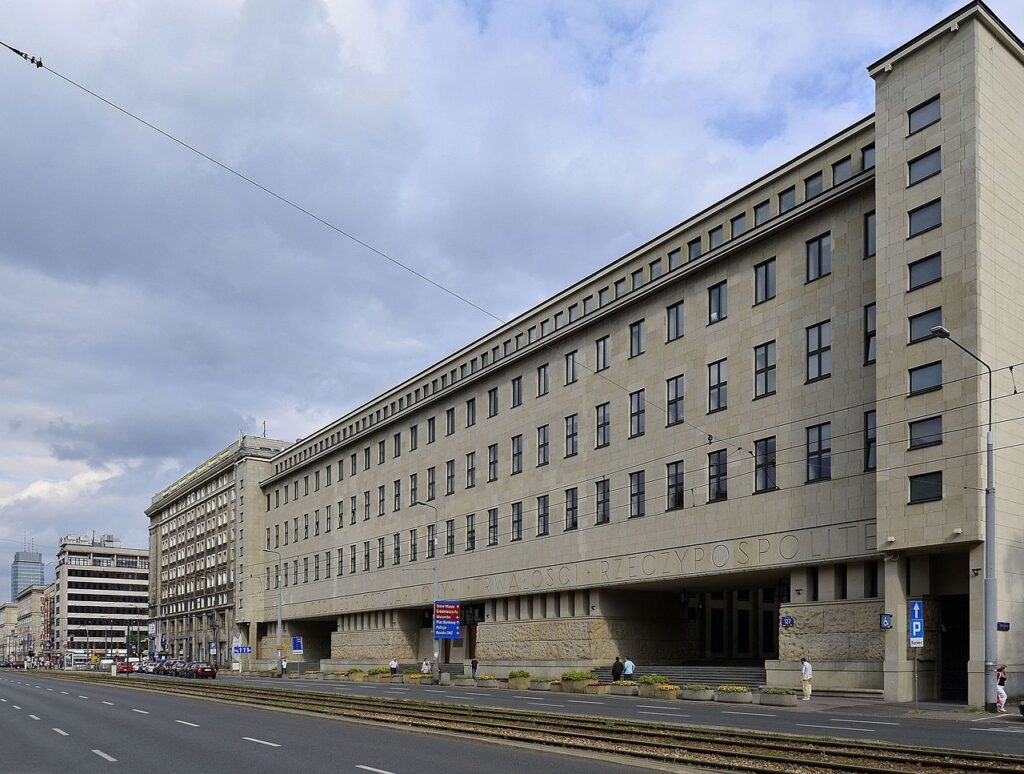In May this year, we reported on how the Ministry of Justice, led by Adam Bodnar, usurping powers that belong exclusively to the National Council of the Judiciary, incited a judge to adjudicate despite his retirement. Meanwhile, everything indicates that a similar situation has arisen today, involving a much more prominent position on the one hand, and on the other, in a much more open, not to say brazen, manner.
Let us first recall the legal situation regarding the issue in question. Pursuant to Article 69 § 1 of the Law on the System of Courts of General Jurisdiction, upon reaching the age of 65, every judge shall, as a rule, retire by operation of law. However, a judge may apply to the National Council of the Judiciary for permission to continue in office, but must do so at least six months before reaching that age.
The National Council of the Judiciary may grant such consent only if there are special reasons, such as the interests of justice or an important public interest. If the National Council of the Judiciary does not grant consent, the decision may be appealed to the Supreme Court, in accordance with Article 73 § 2 of the Law on the System of Courts of General Jurisdiction. Pursuant to Article 26 § 1(3) of the Act on the Supreme Court, the Extraordinary Review and Public Affairs Chamber of the Supreme Court is competent to hear such appeals.
The present case concerns the Regional Court in Warsaw, which is the largest court in Poland in terms of the number of cases and organisational structure. What is more, it concerns the President of that court, Judge Beata Najjar, who today (11 July 2025) reached the age of 65 and thus retired by operation of law. Meanwhile, according to press reports, the judge has no intention of resigning from the bench. What is more, unlike in the case described in May (when a judge submitted a request to the National Council of the Judiciary for the possibility of continuing to adjudicate, the National Council of the Judiciary adopted a negative resolution, the Supreme Court upheld it, but the Ministry of Justice persuaded the judge to ignore both decisions and, contrary to the law, declare to the Ministry that he wished to continue in office), the President intends to remain in office, even though she has not submitted a request to the National Council of the Judiciary for permission to do so.
The case was widely discussed in February this year, when the deadline for submitting such a statement was approaching. It then turned out that the judge had submitted her request for permission to continue adjudicating not to the National Council of the Judiciary, but to Minister Adam Bodnar. This action was reported by the spokesperson for the Regional Court in Warsaw, who stated that:
On 8 January 2025 (date of the letter and date of presentation), the President of the Regional Court in Warsaw, Judge Beata Najjar, submitted to the Minister of Justice, through the Director of the Department of Human Resources and Organisation of Courts of General Jurisdiction and Military Courts, a letter containing the request provided for in Article 69 § 1 of the Law on the System of Common Courts (hereinafter referred to as the ‘Law on the System of Common Courts’) – that is, a statement of intent to continue to hold the position of judge after reaching the age of 65. The letter contains a request that it be submitted by the Minister of Justice to the President of the National Council of the Judiciary immediately after the Council has been formed as a constitutional body, the composition and method of selection of which are regulated by Article 187 of the Constitution of the Republic of Poland. The necessary certificates required by this provision were attached to the request. […] This course of action is justified by the fact that the establishment of the National Council of the Judiciary by the Act of 8 December 2017, which deprived the judiciary of the power to elect members of the Council and enabled the political authorities to interfere in the appointment of judges, effectively creating a body that does not meet constitutional, convention and treaty standards. […] the statement by President Beata Najjar was submitted to the Minister of Justice as one of the members of the National Council of the Judiciary who sits on it ex officio (Article 187(1)(1) of the Constitution), and therefore as a person whose participation in the National Council of the Judiciary cannot be questioned.
This statement raises serious doubts for a number of reasons. Firstly, it once again repeats the false suggestion that the current method of selecting KRS members representing judges is unconstitutional. Meanwhile, as we have repeatedly pointed out, the Constitutional Tribunal – the only body authorised to rule on the constitutionality of legal acts – not only failed to make such a ruling, but even in its judgment of 25 March 2019 (ref. no. K 12/18) it clearly and definitively stated the opposite – that the current method of selecting members of the National Council of the Judiciary who are judges by the Sejm of the Republic of Poland is in line with the Constitution.
Secondly, the statement indicated that submitting it to Minister Bodnar, who, pursuant to Article 187(1)(1) of the Constitution, sits on the National Council of the Judiciary by virtue of his office, would be tantamount to submitting it to the National Council of the Judiciary. However, this is not true. The Minister of Justice is not authorised to represent the KRS as a whole – this competence, pursuant to Article 17(1) of the Act on the National Council of the Judiciary, is vested exclusively in the President of the KRS. Furthermore, as follows from the Ombudsman’s statement, the letter submitted to Minister Bodnar contained a suggestion that it should not be forwarded to the National Council of the Judiciary in its current composition. Thus, it must be concluded that the conditions set out in Article 69 § 1 of the Law on the System of Courts of General Jurisdiction have not been met.
The entire situation at that time was summarised quite succinctly by Dr Konrad Wytrykowski, a retired Supreme Court judge, who pointed out that:
The request must be submitted to the National Council of the Judiciary, and Minister Adam Bodnar does not represent the National Council of the Judiciary. Submitting the request to an authority other than the National Council of the Judiciary will have the same effect as submitting it to the nearest Żabka convenience store.
A similarly unambiguous position was taken at the time by Judge Dagmara Pawełczyk-Woicka, Chair of the National Council of the Judiciary:
At this moment, Judge Beata Najjar is still listed as the President of the Regional Court in Warsaw on its website. The Ministry of Justice has not yet commented on this issue, but given its actions to date, it is reasonable to fear that it will seek to maintain the status quo, contrary to the applicable regulations.
Let us recall that, as we already reported in May, an attempt to adjudicate by a person who is retired has serious consequences for the administration of justice. Firstly, it will result in the incorrect composition of the court and the issuance of court rulings – judgments and decisions – by an unauthorised person, which in turn means, pursuant to Article 379(4) of the Code of Civil Procedure, the invalidity of the proceedings (the obligation to set aside the rulings issued in the course of the proceedings, and this, in accordance with Article 378 § 1 of the Code of Civil Procedure – ex officio) or, in accordance with Article 439 § 1 point 1 of the Code of Criminal Procedure, the existence of an absolute ground for setting aside the ruling. In other words, the Judge’s rulings will expose the parties to the proceedings to delays. The validity of the actions taken as of today by the current President within the organisational competence of the Law on the System of Courts of General Jurisdiction will also be questionable.
On the other hand, treating the Judge as not being in retirement will result in exposing the State Treasury to losses – not only due to the possible payment of her full salary, and not, as required by Article 100 § 2 of the Law on the System of Courts of General Jurisdiction – at 75% of her salary, but also due to her receiving a functional allowance for performing the function of court president, on the terms specified in the Regulation of the Minister of Justice on the functions and manner of determining functional allowances for judges.
It should be noted that this is not the only controversy concerning this court that has recently come to public attention. In February this year, according to press reports, the President established a special section within the Court to which all judges specialising in criminal law who had participated in proceedings before the National Council of the Judiciary since 2018 were assigned. They were to hear only cases of a secondary nature. The judges filed a lawsuit with the labour court for this reason, but it is still pending.
One can only regret that the actions taken by Minister Bodnar and judges who are not sympathetic to him are once again leading to chaos in the Polish justice system. This is all the more so when the case concerns the largest court in Poland.
Image source: Wikipedia.



